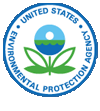 Calif., Construction Company to Pay $170,000 following Illegal Dumping to Federally Protected Wetlands during Strip Mall Construction
Calif., Construction Company to Pay $170,000 following Illegal Dumping to Federally Protected Wetlands during Strip Mall Construction
Company Will Spend an Additional $150,000 to Repair, Restore Nine Acres of Wetlands critical to California's North Coast salmon populations
SAN FRANCISCO - Humboldt County contractor Dennis Wendt of Wendt Construction today resolves a federal lawsuit with the U.S. Environmental Protection Agency and U.S. Department of Justice following the construction company's unpermitted dumping of the equivalent of 200 large dump truck loads of material into federally protected wetlands crucial to neighboring salmon populations. The wetlands are associated with Strongs Creek, which flows approximately 1.3 miles west to the Eel River, a priority resource for maintaining cold, freshwater habitat for salmon and steelhead. The Lower Eel River is considered impaired under the Clean Water Act due to excessive sediment loads, low dissolved oxygen and high temperatures that exceed water quality standards.
"Salmon and steelhead populations have been hit hard on the North Coast due to the unfortunate destruction of their aquatic habitat," said Jared Blumenfeld, EPA's Regional Administrator for the Pacific Southwest. "This action ensures the restoration of wetland habitat along Strongs Creek, and will advance the recovery of these valuable fish species."
The illegal fill activities took place between 2005 and 2008 at two adjacent development sites, the Strongs Creek Plaza Site and the East Littlefield Property and impacted a total of 4.18 acres of wetlands. Wendt Construction will pay a $170,000 penalty for dumping fill material into wetlands connected to Strongs Creek, a tributary to the Eel River located in the City of Fortuna.
As part of the settlement, the company will undertake a multi-year project to restore the damaged wetlands, including the creation of vegetated pond that will support wildlife while filtering water and recharging the groundwater aquifer. Restoration will allow the creek to perform the important ecological functions of retaining soil and nutrients, attenuating floodwaters, and providing movement corridors for wildlife and habitat for the Northern red-legged frog, which is a threatened species in California.
The federal Clean Water Act protects the nation's coasts, rivers, lakes, streams, and wetlands, which are vital to the protection of human health and the environment. Section 404 of the CWA requires anyone who proposes to fill and alter protected waterways, including wetlands, to first obtain permit authorization from the U.S. Army Corps of Engineers.
The proposed consent decree for the settlement, lodged with the federal district court on May 30, 2012, is subject to a 30-day comment period and final court approval. A copy of the proposed decree is available on the Justice Department website at: http://www.justice.gov/enrd/Consent_Decrees.html
For more information about the Clean Water Act Section 404 regulatory program, visit: http://www.epa.gov/owow/wetlands/pdf/reg_authority_pr.pdf
Photos of the site along with a map of the Eel River Watershed will be made available later today at: http://www.epa.gov/region9/press_media/wendt/photos.html
